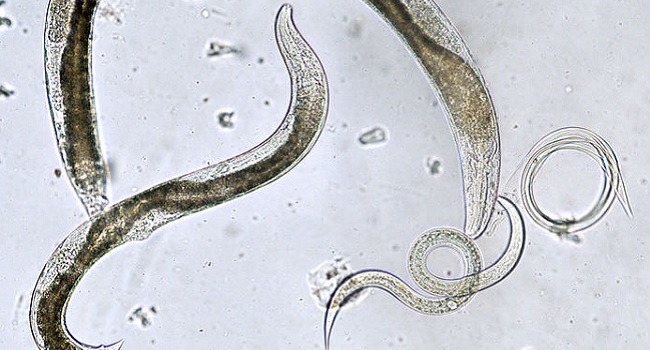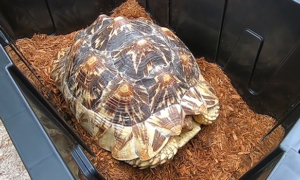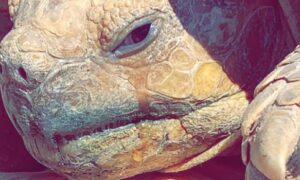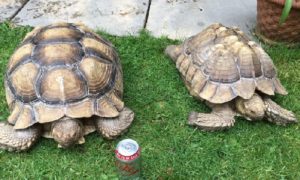Sulcatas get worms through contaminated food or substrate. By ingesting the contaminated food or substrate or even poop, your tortoise can become infected. This is why it is very important to keep the enclosure clean and to quarantine new tortoises before introducing them to your existing pets.
Signs Sulcata Tortoise Has Worms
Depending on how bad the worm infection is, you may see worms or worm fragments in your Sulcata tortoise’s poop. You may see tiny white string-like objects in the dark poop.
Signs that your Sulcata tortoise has worms may include, lethargy, lack of appetite and reluctance to drink water. In more severe cases, you may notice diarrhea and/or vomiting.
How Do I Know If My Sulcata Has Worms?
If your Sulcata tortoise has an minor case of worms, you may not notice any signs. However as the worms continue to lay eggs, you will start to notice signs of worms.
The first signs of worms in tortoises are changes to appetite and activity level.
If your sulcata has severe worms, he may have diarrhea or may vomit. Then in some cases, you will actually see worms in the poop.
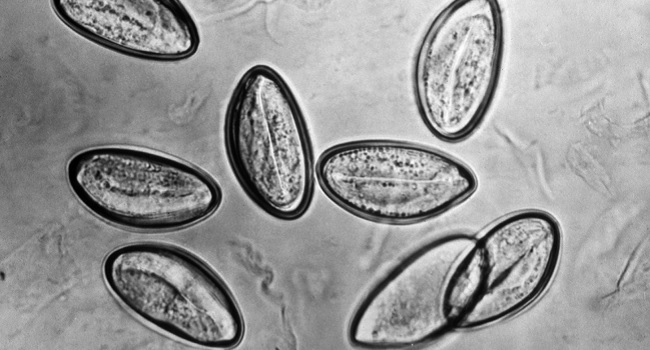
How Do You Treat Worms in Tortoises?
If you think your tortoise has worms, you will want to seek veterinary care. The reptile vet will likely ask for a fresh stool sample that will placed under a microscope to determine if your tortoise has worms. If your tortoise has worms, the veterinarian will be able to determine what kind of worms your tortoise has and what treatment will be required.
The most common worm treatment in tortoises is Panacur (Fenbendazole). It doesn’t kill the eggs only the actual worm, which is why treatment lasts a few days. In some cases, you may have to do a repeat dose after a week or two has past.
Is Pumpkin a Dewormer in Tortoises?
There are many sources that say only the pumpkin seeds offer de-worming properties for tortoises. Other sources, claim the pumpkin meat is the actual wormer. However, pumpkin may only aid very mild cases of worms.
Dangerous Worming Medication for Tortoises
Although Ivermectin and Albendazole are popular medications for worming dogs and cats, neither are safe for tortoises and can be fatal.

